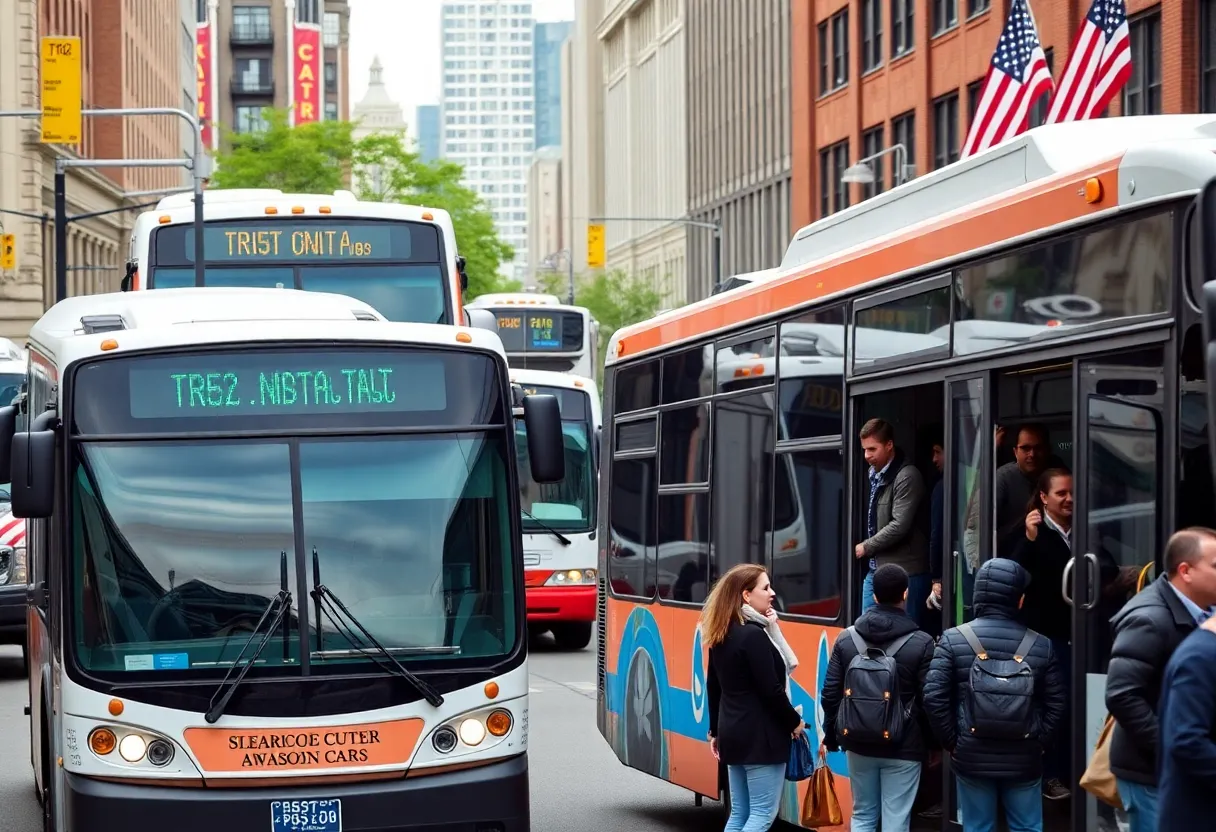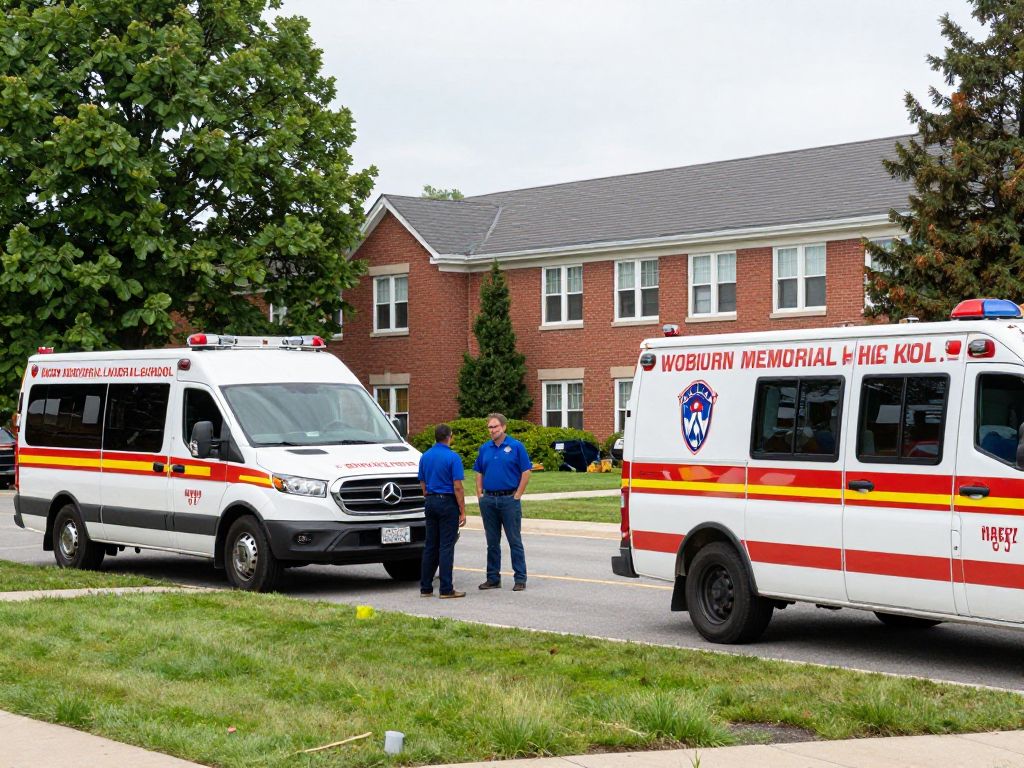News Summary
The Massachusetts Bay Transportation Authority (MBTA) is considering eliminating fares across its bus network to enhance accessibility and boost ridership. This move comes as pilot programs for certain routes have proven financially unsustainable. The cost for the initiative is estimated between $72 million and $121 million annually. Currently, fare revenue is about 15% of the MBTA’s total operating revenue, reflecting a steep decline since the pandemic. The proposal also raises concerns under the Americans with Disabilities Act, with potential increased demand for paratransit services. Community engagement is planned as the MBTA assesses this significant policy change.
Boston—The Massachusetts Bay Transportation Authority (MBTA) is exploring the possibility of eliminating fares across its entire bus network. This proposal aims to enhance accessibility and boost ridership, as officials have deemed pilot programs for specific routes to be financially unsustainable and not advisable.
The cost of making bus rides free for passengers is estimated to range between $72 million and $121 million annually. This figure also includes potential additional vehicle capital costs of up to $9 million. Currently, fare revenue from the MBTA’s bus system represents approximately 15% of the authority’s total operating revenue, which is expected to reach $403 million in fiscal year 2025. This marks a significant decline from previous years, where fare revenue was recorded at 10.2% in fiscal year 2021, 33.5% in 2020, and 42.7% in 2019, reflecting the pandemic’s impact on ridership and fare collection.
The MBTA operates over 150 bus routes within the Boston metropolitan area, providing essential connections for various neighborhoods, cities, and towns. Among existing fare-free services are the Silver Line 1, which connects to Logan International Airport, and three bus routes in Boston (28, 23, and 29) that have been fare-free for over three years through funding from the American Rescue Plan Act. Reports suggest that these pilot fare-free services have led to an increase in ridership that exceeds levels recorded before the COVID-19 pandemic. Approximately 40% of riders using these services have reported saving money due to the elimination of fares.
However, the proposal to eliminate bus fares raises considerations under the Americans with Disabilities Act. If the MBTA follows through with this initiative, it would also need to provide complimentary paratransit services, which could lead to heightened demand and additional operational costs. Furthermore, securing dedicated and sustainable funding sources is crucial to prevent potential unfunded service commitments in the future.
The administration of Governor Maura Healey has previously invested in limited free ride programs for regional transit authorities, which have evidenced significant ridership growth. Recently, in October 2024, the Healey-Driscoll Administration allocated $30 million in grants aimed at supporting year-round fare-free public transit services for 13 regional transit authorities. The funding landscape for the MBTA comprises state sales tax, federal grants, state appropriations, and local assessments, with the upcoming FY 2026 spending plan proposing substantial investments in transportation and education infrastructure upgrades that may serve as financial support for fare-free initiatives.
As the MBTA considers implementing a fare-free bus network, the authority is analyzing existing ridership data to assess the viability of this proposal and to identify potential routes for future fare-free expansion. Engaging with local communities and stakeholders will be an important next step in determining the overall impact of such a significant policy change.
Deeper Dive: News & Info About This Topic
HERE Resources
New MBTA Commuter Rail Connects South Coast to Boston
March Travel Deals and Discounts in New England
Additional Resources
- Sentinel & Enterprise
- Wikipedia: Massachusetts Bay Transportation Authority
- NBC Boston
- Google Search: MBTA fare-free bus
- Eagle Tribune
- Google News: MBTA fare-free buses
- Newburyport News
- Encyclopedia Britannica: Public Transportation
- State Affairs
- Google Scholar: MBTA fare-free bus

Author: STAFF HERE BOSTON WRITER
The BOSTON STAFF WRITER represents the experienced team at HEREBoston.com, your go-to source for actionable local news and information in Boston, Suffolk County, and beyond. Specializing in "news you can use," we cover essential topics like product reviews for personal and business needs, local business directories, politics, real estate trends, neighborhood insights, and state news affecting the area—with deep expertise drawn from years of dedicated reporting and strong community input, including local press releases and business updates. We deliver top reporting on high-value events such as Boston Marathon, Head of the Charles Regatta, and Boston Harborfest. Our coverage extends to key organizations like the Greater Boston Chamber of Commerce and Associated Industries of Massachusetts, plus leading businesses in finance, biotech, and insurance that power the local economy such as Fidelity Investments, Biogen, and Liberty Mutual Insurance. As part of the broader HERE network, we provide comprehensive, credible insights into Massachusetts's dynamic landscape.





